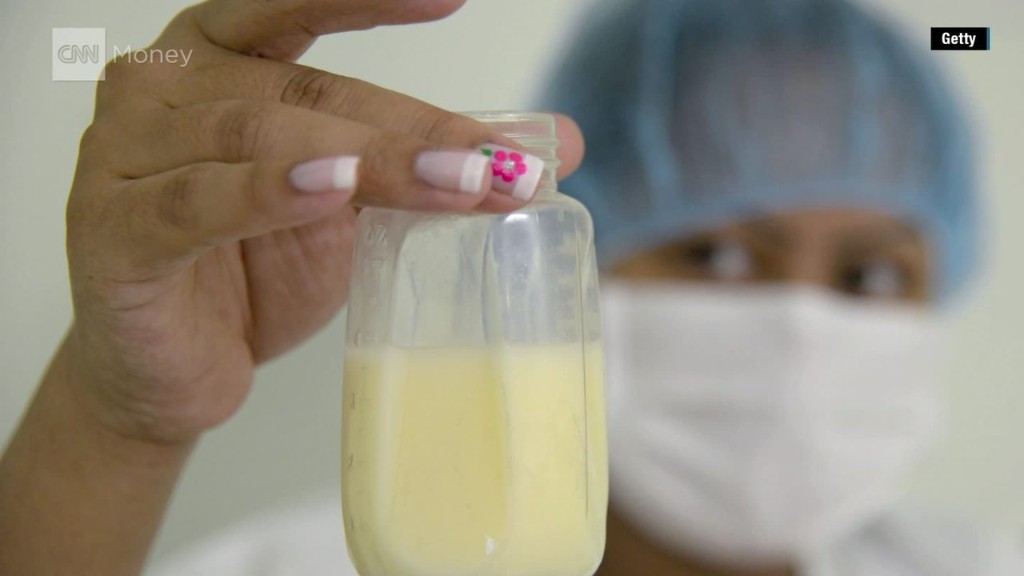
The medical establishment has said for years that "Breast is best," and now corporate America is catching on.
Many mothers want to nurse but can't for one reason or another, which is why there is a growing industry devoted to distributing breast milk.
For-profit companies and non-profit milk banks supply breast milk to hospitals, the majority of which goes to at-risk babies in neonatal intensive care units, or NICUs.
But supply at the non-profit milk banks, vetted by an organization called Human Milk Bank of Association America (HMBANA), has not kept up with demand. That's because it relies on donors.
"If every premature baby in every NICU received exclusive breast milk -- that's 100% milk from donor banks -- I'm not sure there would actually be enough donor milk to go around,'' said Dr. Lori Feldman-Winter, a member of the American Academy of Pediatrics.
The shortage is increasing tensions between non-profit donor banks and commercial outfits like Oregon-based Medolac, which collects its own supply by paying donors up to $2 an ounce.
Both non-profit breast milk and companies like Medolac currently sell milk to hospitals for about $4 -- 6 dollars an ounce. That's 40 times more than cow's milk and 3 times more than baby formula.
Related: The 'Keurig' for baby food, and other knockoffs
The company's founder Elena Medo says that as a commercial enterprise, Medolac has found a way to increase breast milk's shelf life and to produce donor milk on a scale that non-profits can't.
"We process human milk in thousands of gallons instead of hundreds of ounces as has been previously done," Medo said.
Critics say that Medolac's policy of paying donors will discourage women from donating to non-profit banks.
"I think the biggest concern is a for-profit company would somehow take advantage of mothers or create a situation where mothers would have too much incentive to donate milk," she said.
That incentive that may only get stronger as the industry explores other uses for breast milk -- from helping bodybuilders build muscles to biotech applications that could treat treat chronic diseases.
"It's headed to where human milk will be the industry standard for any fragile infant or child," said Medo. ''We're already working on areas where we can provide different components of human milk for different medical conditions such as asthma and ulcer colitis.''
